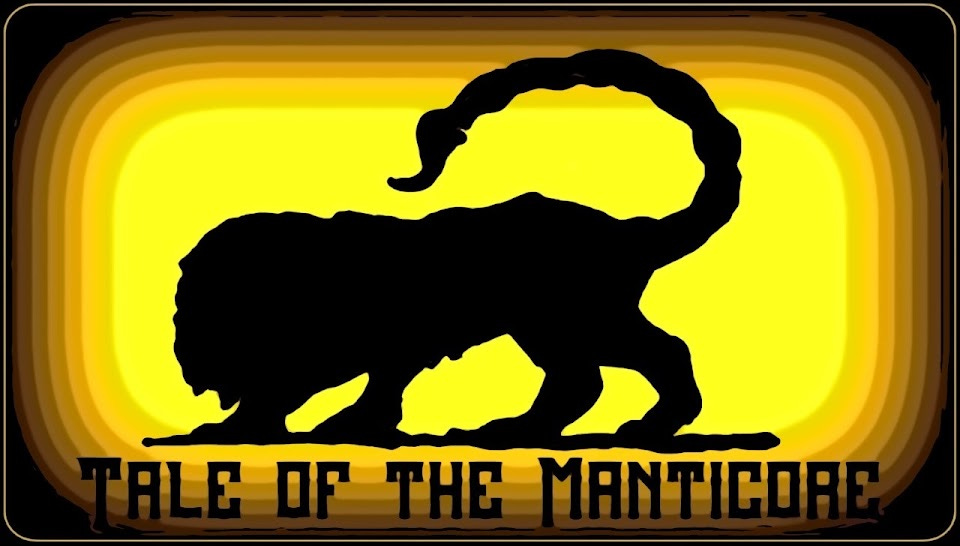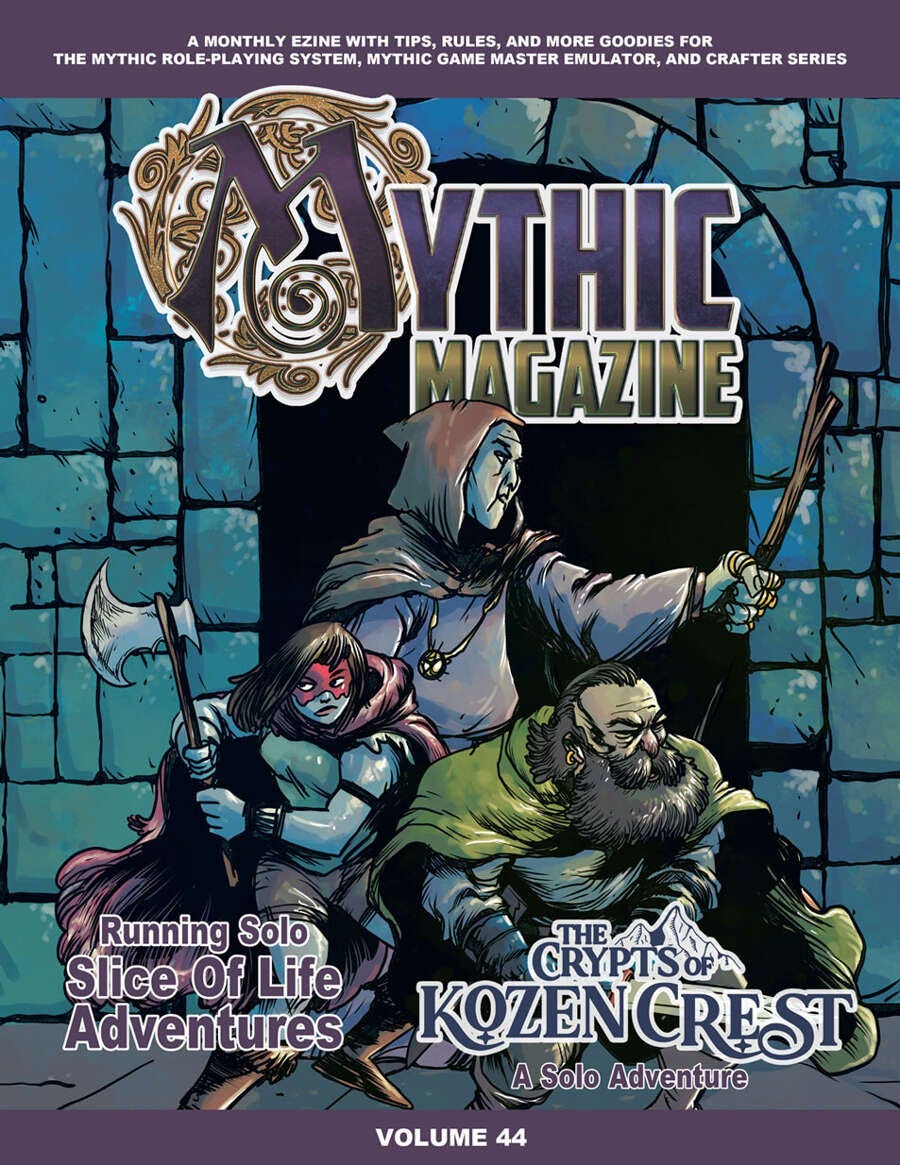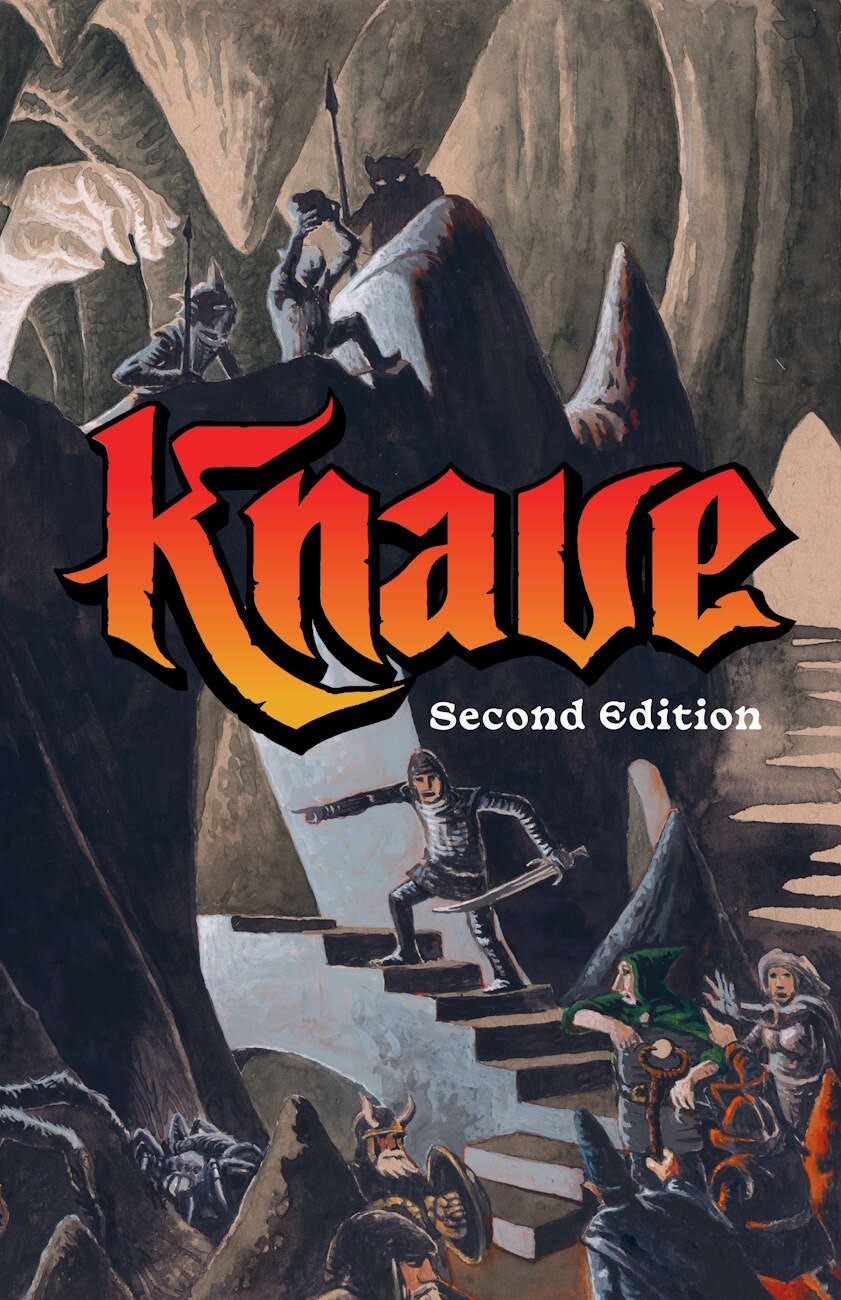Prewritten Modules CAN Be Enjoyable for Solo Gamers And How To Make It Happen
A Guest Post from Eric Dill of The Dragon's Den
Welcome to the Lone Toad Guest Author edition
I’ve taken a few minutes away from my toady vacation to publish this post from
of The Dragon’s Den. Eric is a fellow Solo RPG traveller, an excellent writer, map maker and artist.You should subscribe to his newsletter below before you do anything else!
Now I’m going to leave you in the safe hands of Eric and get back to my Mojito.

Why Prewritten Modules Can Be Enjoyable For Solo Games
Playing Solo TTRPGs is an art. It requires self-motivated creativity, and isn’t for everyone. But for those of us who can’t help themselves, it becomes more than just a hobby. My own journey began with Ironsworn, as a cathartic experience from heavy mental and emotional stress. Solo gaming gave me direction and focus when I needed it most. Others have different connections to the hobby. Maybe they have a hard time finding a table (whether in person or digitally), or lack the time to play in group games. Whatever the case, solo gaming scratches an itch for many.
But not everyone feels as I (and you, probably) do. Many gamers know only table games with friends, and scoff at the idea of playing a TTRPG by themselves. A common critique is “that’s just writing a novel.” There’s truth there, especially for some of us (it's me, I’m some of us). Even the creator of one of the most popular solo RPG podcasts around has said several times that before he began Tale of the Manticore, he’d have said the same thing about solo gaming.
Ultimately, solo gaming is about creating a narrative you get to impact through choices and dice rolls, using whatever game system you want. I’ve played satisfying solo adventures using a variety of group-oriented TTRPGs, including 5th Edition D&D, ShadowDark, Cairn 2e, and Dragonbane. Where I have found difficulty, however, is in playing modules (pre-written adventures) solo. There are very few modules designed with a single player in mind (though they do exist; see Ribbeting Adventures #9 and the NOTE below for an example).
NOTE: There is (at least) one exception to this. Tana Pigeon, of Mythic and Mythic Game Master Emulator (GME) fame, has released at least four adventure modules designed for solo play and the use of the Mythic GME. I haven’t finished playing the most recent one, “The Crypts of Kozen Crest” (available in Mythic Magazine #44), but it is the via media between pure solo gaming and a module.
My Experience
I recently completed an Actual Play series using the AD&D module N4: Treasure Hunt on my blog, The Dragon’s Den, and learned quite a bit about playing modules solo. I first became aware of Treasure Hunt in the summer of 2022 as I was looking for information on zero-level play. The concept of zero to hero journeys has been an interest of mine since I watched Disney’s Hercules when I was a kid. As a fledgling game designer, I wanted to write an adventure for level zero characters, and N4 was an immediate source of information. So when I finished my Four Against Darkness solo actual play in June of this year, I finally decided to jump into this module.
I quickly learned that modules are difficult to play solo—whether playing a single PC or a party of four. On a positive note, this experience helped me to better define what it is that I love so much about solo games, and allowed me to think about the challenges that modules present to solo gamers.
Challenge #1 - Character vs Game Master Emulation
It did not take long for me to realize that trying to play as a player with the knowledge of a GM is next to impossible. Solo games emulate the Game Master as a way of allowing the player to immerse themselves in their character(s), and leave the twists and turns of the narrative up to the dice. When the adventure is already written for you and you have to read it to know how to progress the narrative to its established end, it is difficult to separate the knowledge you have as a GM and the knowledge your characters have. I quickly found that I was not going to be able to play as I usually do. I was not a player in the game. Instead, I found myself emulating my characters so that they responded to what I, as the GM, presented to them.
Challenge #2 - The Narrative Railroad
This first challenge led straight into the second. Because I had begun to emulate my characters, I followed the adventure as written pretty strictly. Not only was I not playing the game, I wasn’t creating anything either. As someone experienced with emergent storytelling, I quickly felt railroaded. Aside from the randomness of dice rolls—which largely appeared in combat and as wandering encounter checks—I was not experiencing the surprise or the thrill I usually associate with TTRPGs.
Potential Solutions
While I did not enjoy my experience with the module as much as I had hoped, there are some potential solutions to the challenges I faced that would have improved my experience. I offer them here as aids for any of you who might endeavor to play a module solo.
Solution #1 - Character Backstories & Motivations
While I cannot think of any solutions to the character vs GM emulation challenge, there are some things you can do to make your characters unique and interesting. Once I discovered that I was not the player in my game, I set about creating a list of 3-4 traits for each character. I rolled these from tables in Knave 2e (the tables alone make the game worth owning!) and used these traits to help determine how my character would act in a given situation.
This alone was unsatisfying. I had no real narrative reason why they were the way they were except for a few randomly generated keywords. This led to the development of backstories for the characters. Blanche and Arthur became husband and wife, and the owners of an inn where Blanche worked the front and Arthur was the chef. They were simple people, who really only wanted to enjoy their love and life together. When the dice brought Arthur to the end of his story, this small background allowed the character's death to have an impact that it might not have had otherwise.
In an email exchange with Jon, the creator of “Tale of the Manticore,” he said:
“I think my games are at their best when I know who the characters are - if you have a sense of their goals and morals, then their actions almost become foregone conclusions.”
This, I think, is essential to playing pre-written modules. You have to really know who your characters are, their motivations, background, and morals before you can successfully and satisfyingly emulate them.
Solution #2 - Guidelines Rather Than Rules
The problem of narrative railroad is a consistent challenge in all TTRPG endeavors, but particularly so when playing an adventure as written by yourself. For some reason, I struggled to let myself tell the story for the first half of my time with Treasure Hunt.
By the midpoint of the adventure, I allowed myself to go largely off-script and kept only the main highlights of the written adventure. I was bored, frustrated, and not having fun. So I used the “big threat”—the goddess in the temple planning to destroy the island—as a jumping point for two things.
I used the goddess to present Blanche with an offer she couldn’t refuse: Vengeance. Blanche immediately accepted the goddess’s offer of power and gained her class (she became a cleric well before she had the experience to hit level 1 as written). She then snuck out and used the reverse of Purify Food and Drink to poison the goblins’ food and water supply, exacting vengeance for the goddess and her husband…none of which was in the adventure. It was the first time while playing I felt creative.
The solution here is to treat the written adventure more as guidelines rather than rules. Keep the major plot points, the key locations, and events that will lead you to the adventure’s end, but let yourself wander off the “written path” and explore, using whatever tools you usually do. Roll on your oracle of choice, toss some d10s on a Meaning and Event table, create some unexpected chaos. Come at the goals of the module from your own direction. If something written doesn’t seem fun, decide what the goal of that section is and tackle it in a way that seems best to you (or the Oracle). You could even make your own random tables for weather or encounters to inject some of your own creativity, as Simon, creator of “Legend of the Bones” podcast, suggested in a recent conversation.
There is no one holding a sword to your neck and demanding you follow the adventure to the letter. You’re the GM, and you can tell the story however you please. I started having fun the moment I let myself be creative and stopped being a slave to the adventure-as-written. Go rogue.
CONCLUSION
Solo gaming is all about letting your creativity mix with the random will of the dice. As a solo gamer, I want to be the player, embodying my character(s) in an emerging, randomly generated narrative. I find that these two things point me to the core of solo gaming: GM Emulation. Soloists don’t want to move players around the board like a narrated version of Risk. We want the story, the action, and the world to emerge through play. Modules present a challenge to the very heart of why I gravitate to solo games. I believe this is why I found this experience to be a bumpy and frustrating journey—but it was not without fruit, and it can be done.
What about you? Have you played a module solo? If so, how did it go? Did you find yourself hitting the same obstacles I did? Let us know in the comments.
Thanks, Eric!
Thank you Eric for sharing your thoughts on playing modules solo. In the New Year, I’m going to use some of these tips to dive into a prewritten adventure and see how I go.
Now if you haven’t subscribed to The Dragon’s Den yet, what are you waiting for? Eric has a ton of great solo RPG content and stories and is always worth a read.
As always I write this because you all read it. Please like this newsletter and share it with others who may be interested.
Zorg! - A Croaker RPGs Cozy Dungeon Dive
If you are still reading it is because you love solo RPGs. Check out Zorg for a great self-contained solo adventure.
The perfect game for upcoming relaxing holidays, Zorg! is a cozy choose-your-own-adventure dungeon crawl meant for 1 person. Pick one of three adorable characters. Dive into the grotto to save the frogkin family maybe find some cool items along the way.
The Load Toad has affiliate links. If you click a link you’ll be supporting the Lone Toad and it will cost you nothing.












I came to a very similar solution for soloing a module, currently running B2 with Mythic 2ed. I'm taking and putting the big plot points and rumors on the adventure thread list, then letting mythic do its thing to come at these ideas in different ways. For example My current adventure is to find and stop the kobolds from raiding travelers on the road near the keep, using ideas from B2 without the ravine, I'm randomly relocating all the caves and now the kobold's one is south of the river that is used to stage the raids on the road. Are the lizard men still in that area, or the two factions in cahoots, maybe the kobalts took over the original lizard man cave, we'll see what happens when I play it out.
Great article!
I always really enjoy your stuff and it's cool to see behind the scenes a little bit more.
I'm running into a similar situation with my One Ring solo play. The book I started with is a very clear cut adventure and playing it Solo is becoming challenging. It's not impossible, but I spend more time than I would like trying to figure out what players might hypothetically do instead of reacting to situations.
I think I am about to switch to a setting style book that should let me have a lot more freedom as a solo player.